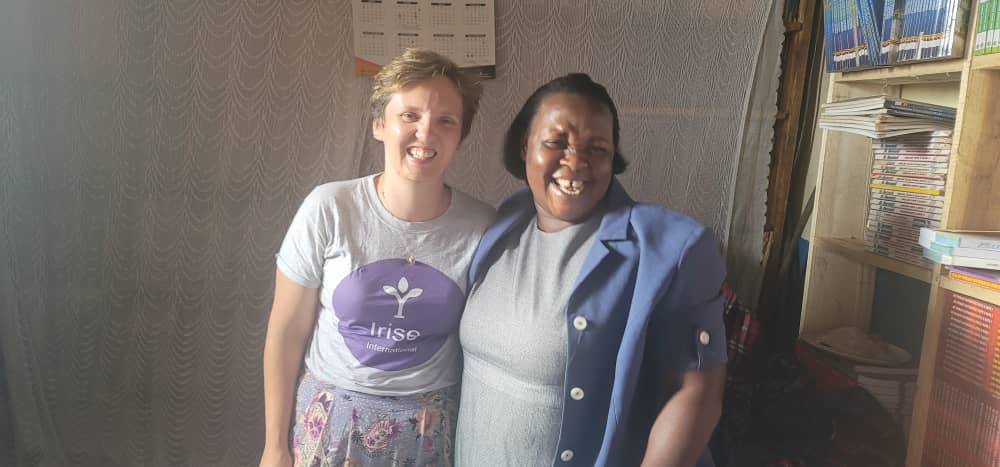
A Time of Radical Change- reflections on my recent time in East Africa
In July I attended the Women Deliver conference in Rwanda with colleagues from Irise Institute East Africa and then travelled to Uganda to see Irise Institute East Africa’s work in action.
The way that Irise started was at the forefront of my mind. A Kenyan schoolgirl, given a chance to tell stakeholders what she wanted and needed, sharing that periods were holding her back in school and no one would listen. We dreamt of creating an institution that could champion the voice and leadership of the people most sidelined by this issue. An institution that could make people listen to the voice of a Kenyan schoolgirl and that could help her find the courage to speak out in the first place.
The Women Deliver conference represents the largest gathering of gender equality advocates in the world. This year, it was held in the Global South for the first time after criticism that previous conferences had been dominated by western-led organisations, priorities and agendas. At Women Deliver, Irise’s team co-led the only concurrent session on Period Equality, in partnership with the Global Menstrual Collective, a global platform bringing together UN agencies, civil society and grass movements.
With support from the Waterloo Foundation, we were able to bring a truly diverse set of grassroots voices into the room with politicians, funders and leaders from UN agencies. Our opinion piece in the British Medical Journal based on the session lays out an agenda deeply shaped by grassroots, feminist and global south voices and priorities.
I felt, as we led the room in a chant of ‘menstrual justice for all’ that our Kenyan school girl would be proud of what her testimony has achieved.
Although we live in challenging and disrupted times, the increasing interest and opportunity to genuinely shift and transform harmful power structures, that were take for granted even a decade ago, fills me with hope that we can build a fairer future.
Who could have a imagined a truly global conference in the heart of Kigali ten years ago? Who would have believed that periods would be discussed in parliaments all over the world when we sat with those Kenyan school girls, in a dusty playground, whispering in case the teachers overheard?
The fight for equality is more vicious than it’s ever been because we’re demanding more radical change but it’s also leaping forward in ways we couldn’t have imagined.
When I visited Irise Institute East Africa in Uganda after the conference I was struck by the progress that has been made, despite a pandemic, despite significant funding cuts for girls’ education. I met with local government officials who have integrated Irise’s period friendly checklist into their routine practice. I met with national government officials keen to talk about Uganda’s first standalone Menstrual Health Strategy and thank Irise for working with them to accelerate progress. I saw a team deeply embedded in the national and regional ecosystem shaping an agenda by and for East African girls and young women. I also saw the resilience that has enabled so much progress in such challenging times. It’s a resilience that is born from collective power, from knowing that you are not alone and that, however hard the fight, someone has your back. It is, I believe, the hallmark of Irise in action.
Menstrual justice has always been about radical change- we fool ourselves if we think it is about a small adaption here or a little addition there. The prioritisation of menstrual needs and the end of menstrual related discrimination represents a radically different world order where people with a female body are not disadvantaged their by biology and the testimony of a school girl in rural Kenya can shape local, national, and international policy for the better.

Meeting with the Jinja District inspector of schools.

Connecting with Lizza Kawooya the Founder of Dwona Initiative and a member of the Period Equality Network.

Meeting with a headteacher at a Period Positive school.

Girls at a Period Positive school.

Some of the speakers at our Women Deliver concurrent session.

The launch of the next phase of Irise’s work with the Period Equality Network.



No Comments